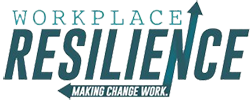 I recently attended a fundraising event where I didn’t know a number of people. When it was time to sit down for lunch, I worked my way over to a table of all new faces. I introduced myself to the person on my left and then turned to my right. With a smile on my face, I told my tablemate my name and began to make conversation.
I recently attended a fundraising event where I didn’t know a number of people. When it was time to sit down for lunch, I worked my way over to a table of all new faces. I introduced myself to the person on my left and then turned to my right. With a smile on my face, I told my tablemate my name and began to make conversation.
The next thing out of my mouth was the following:
“So what do you do?” With a stern look on her face, and a negative tone to her comment, she replied, “I work really hard”.
I like to think of myself as fairly perceptive when it comes to people and the communication process. However, this time, I was confused. In the next few seconds I attempted to figure out what was going on in the interaction. My tablemate seemed irritated and I knew that I hadn’t said anything out of the ordinary. I searched my memory to see if I was supposed to recognize this woman and I had disappointed her. I came up with nothing. I needed to figure out why she was reacting to me in such a negative manner.
My next move was to agree with her. “I’m sure you do work hard.” Then, it occurred to me that maybe she took offense to the question, “what do you do”. So then I asked her in a light way what she works hard DOING. She began to share how she works at home with her teenage children. After we got over that hump, she began to loosen up. She shared a little about her life and we proceeded to get along just fine.
Apparently, her decision to work from home was colored with much emotion. Of course, I had no idea that I was walking into such a landmine. I had just met her! However, I’m imagining that in her mind, I had a lot of nerve to ask her what she does. In her mind, she feels that people are looking down on her because she isn’t working. In her mind, she’s angry that I had the audacity to ask her that question and act like she doesn’t work hard.
In her mind, she thinks I’m judging her.
Of course you know that’s not the truth. I was innocently trying to make conversation with a tablemate. However, from where she sat, the judging seemed very real.
There have been times that I’ve misinterpreted other’s actions and words because of what I was grappling with in my own head. My negative thoughts misconstrued the actual message that the other person was trying to convey to me. I’m also pretty positive that the same thing has happened to you on more than one occasion. You have had mistakes in thinking fueled by some “unfinished business”. I’m referring to that “stuff” that triggers you to react and respond inaccurately to the sent message. That stuff triggers you to not only misinterpret the message, but also can negatively impact the outcome of the situation. Your behavior at these moments can squelch opportunities for your future.
That unfinished business will continue to haunt you until it gets addressed and dealt with head on.
So, do yourself a favor and deal with what’s clogging up your brain so you can be more effective in your personal and professional life!
















